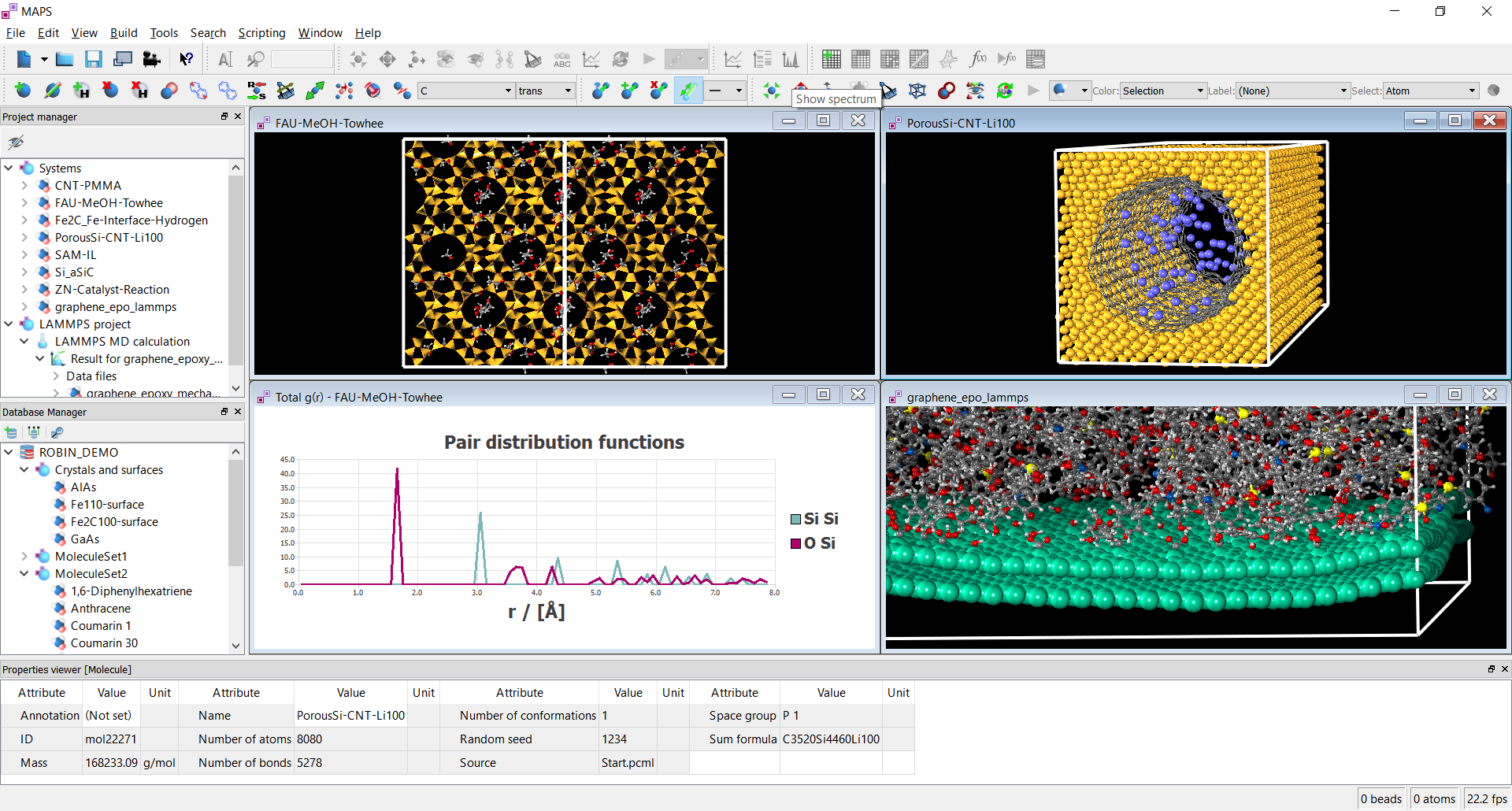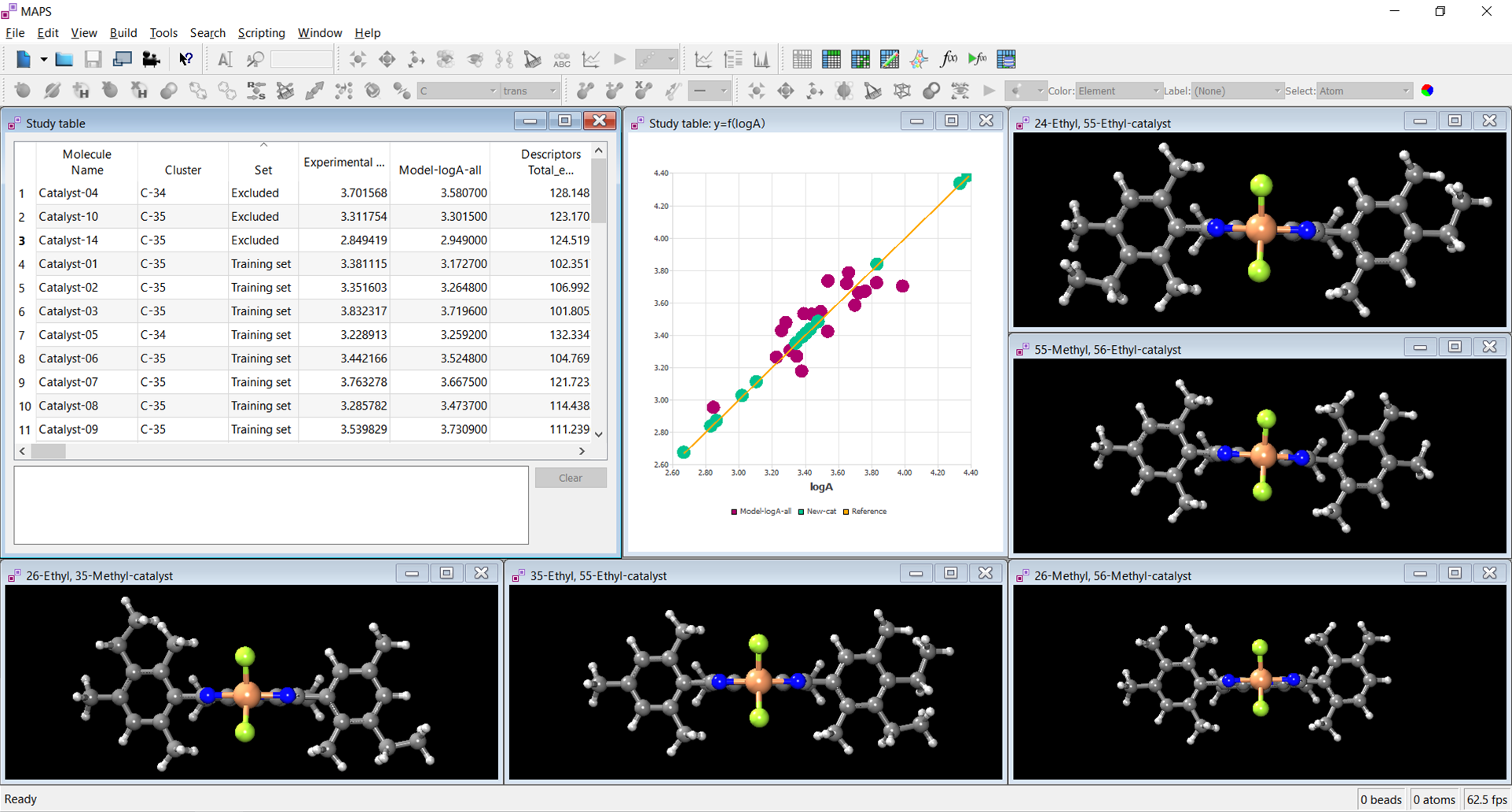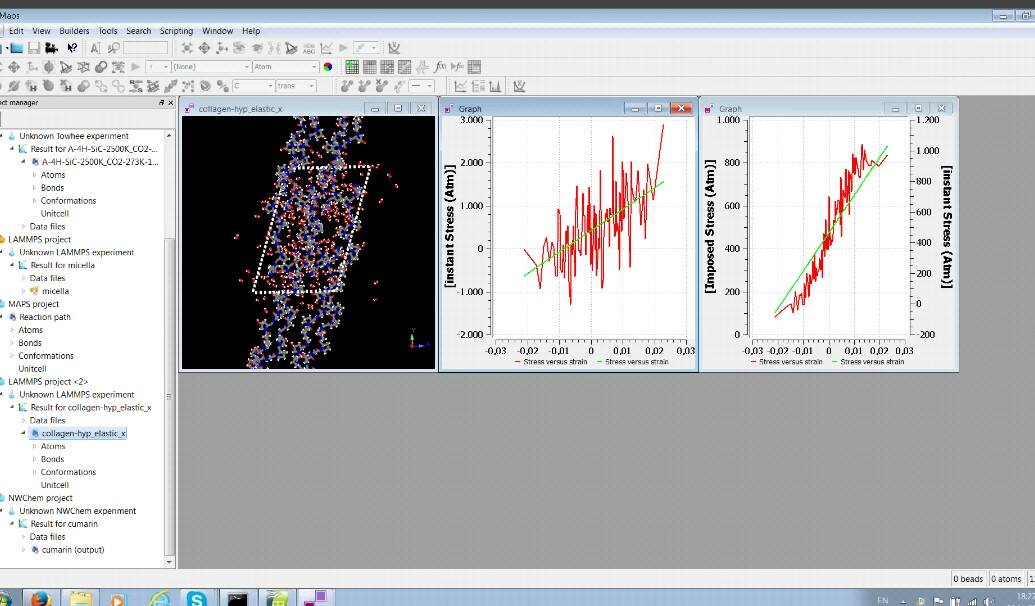MAPS Platform
A multi-scale materials simulation platform for product design and development. Users can BUILD the digital twin of the product at the desired scale, SIMULATE its properties and ANALYZE complex output in a human-readable form.
Materials And Processes Simulations (MAPS)
MAPS is a modeling platform with state-of-the-art user-friendly graphical interface for model building of any types of materials ,properties simulation and powerful analysis capability
Features & Capabilities
MAPS is a multiscale simulation environment in the fields of Quantum, Classical & Mesoscale and Engineering. MAPS is also a powerful analysis toolbox which allows to load output files of simulations you have performed with the simulation engines supported by MAPS and perform the relevant analysis with the tools available therein. MAPS is built on an architecture that allows fast development and deployment of new functionality and extension of the existing one. With a basic knowledge of Python scripting it is possible to quickly create powerful Python scripts that allow to model, simulate and analyze complex systems exactly in the way one needs. MAPS includes visualization capability for the visual inspection of complex systems (atomistic and mesoscopic) as well as of all types of physicochemical properties. Seamless zooming of structures from the atomistic to mesoscopic level and reverse mapping from mesoscopic structures back to atomistic systems is easily achieved with MAPS, and the corresponding potential transformations are also automated. Finally, MAPS offers full control of job execution as well as the possibility to read many output file formats and create all input files for all simulation engines supported by MAPS.
Modeling Workflow
In modern industrial R&D projects materials scientists and engineers need to build efficient correlations between the macroscopic properties of a system and the microscopic characteristics of the materials involved. In such a project several candidates need to be considered. Molecular simulation technology offered within MAPS allow to address all aspects of materials design ranging from quantum mechanics to thermodynamics and to get the relevant insights for efficient product and process design. MAPS infrastructure offers a unique combination of simulation technology, data management via its built-in database, and Python based scripting of its functionality that allows to prepare and execute sophisticated simulation protocols. A protocol can combine all tasks a scientist needs to execute, and this can be repeated for a large number of models.



